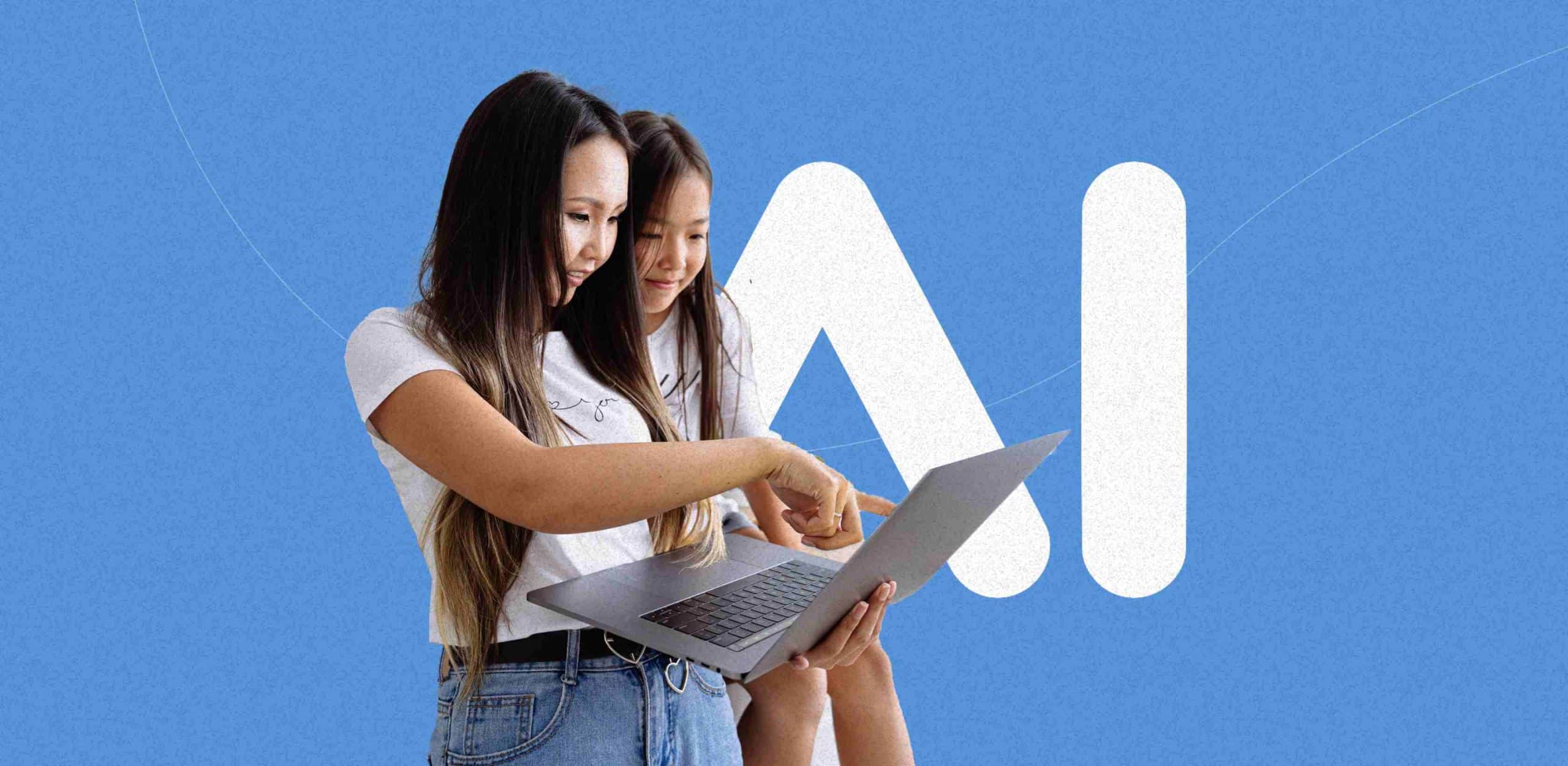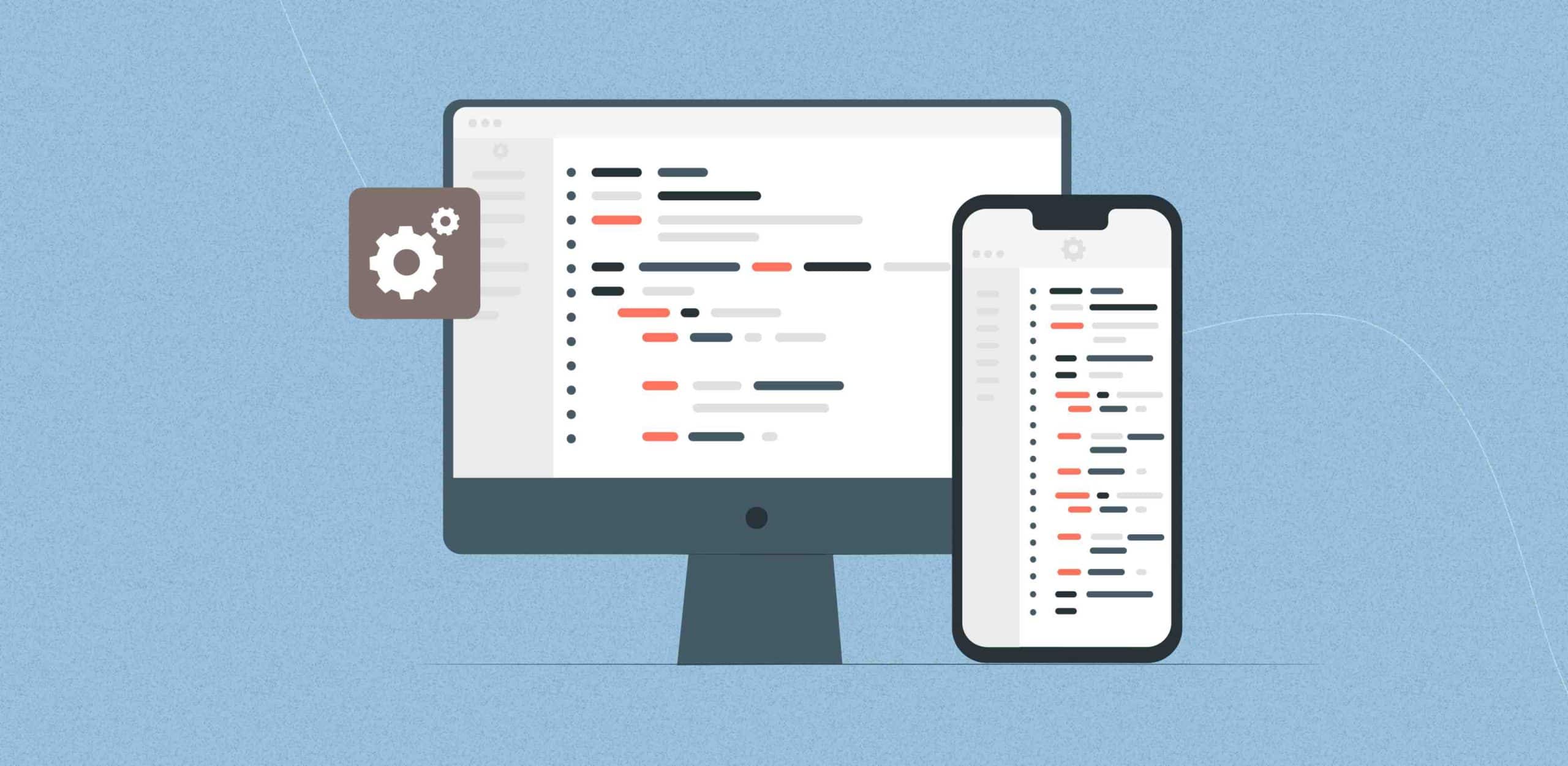eLearning app development has become a cornerstone in the modern educational landscape, driving significant changes in how learning is delivered and experienced. Among the most groundbreaking advancements in this field is the integration of Artificial Intelligence (AI) within eLearning apps. AI’s capacity to deliver personalized learning experiences and intelligent tutoring systems is transforming the eLearning industry, providing customized educational solutions that address the unique needs of each learner.
In this blog, we will delve into the substantial impact of AI on eLearning app development, highlighting how personalized learning and AI tutors are revolutionizing the way education is approached and consumed.
The Rise of AI in eLearning App Development
The adoption of AI in eLearning app development has been nothing short of transformative. AI’s capabilities in analyzing vast amounts of data, understanding learning patterns, and predicting learner needs have made it a crucial component of modern eLearning apps. As more educational institutions and corporate training programs shift to online platforms, the demand for AI-driven eLearning solutions has skyrocketed.
AI’s integration into eLearning apps has enabled the creation of adaptive learning environments where content is dynamically adjusted to suit each learner’s pace, style, and preferences. This shift from a one-size-fits-all approach to a more personalized learning experience is a game-changer for educators and learners alike. Moreover, AI-powered analytics provide valuable insights into learner behavior, helping educators refine their teaching strategies and improve outcomes.
With the global eLearning market projected to grow exponentially in the coming years, AI’s role in this sector will only become more significant. eLearning app development companies are increasingly leveraging AI to create more engaging, effective, and scalable learning solutions.
What is Personalized Learning in eLearning App Development?
Personalized learning refers to an educational approach that tailors the learning experience to meet the unique needs, strengths, and interests of each learner. In the context of eLearning app development, personalized learning is made possible through AI-driven technologies that analyze learner data and adapt content accordingly.
The importance of personalized learning cannot be overstated. Traditional education systems often struggle to address the diverse needs of learners, leading to disengagement and suboptimal outcomes. Personalized learning, on the other hand, ensures that each learner receives the right content at the right time, in the right way.
AI in eLearning apps enables personalized learning by using algorithms that track learner progress, identify knowledge gaps, and suggest appropriate content or activities. For instance, if a learner is struggling with a particular concept, the AI system can recommend additional resources or exercises to reinforce understanding. Conversely, if a learner is excelling, the system may introduce more challenging material to keep them engaged.
Personalized learning also extends to the pacing of lessons. AI can adjust the speed of content delivery based on how quickly a learner grasps new information. This adaptability ensures that learners neither feel overwhelmed nor under-challenged, leading to a more satisfying and effective learning experience.
Role of AI in Personalized Learning
AI’s role in personalized learning within eLearning apps is multifaceted. One of the key components is the use of AI-powered algorithms that analyze vast amounts of data to create individualized learning paths. These algorithms take into account various factors, including a learner’s prior knowledge, learning style, and performance on assessments.
Adaptive Learning Systems
Adaptive learning systems are at the forefront of AI-driven personalized learning. These systems dynamically adjust content based on real-time feedback from learners. For example, if a learner consistently struggles with a particular type of question, the system can provide additional practice in that area or present the information in a different format.
Predictive Analytics
AI also plays a critical role in predictive analytics, where it predicts a learner’s future performance based on current data. This capability allows educators and eLearning app development companies to proactively address potential issues before they become significant barriers to learning.
Natural Language Processing (NLP)
Natural Language Processing (NLP) is another AI-driven technology that enhances personalized learning. NLP allows eLearning apps to understand and respond to learners’ queries in natural language, making interactions more intuitive and engaging. For instance, an AI tutor might use NLP to provide explanations or answer questions in a conversational manner, making the learning experience more interactive and personalized.
Content Recommendation Engines
Similar to how streaming services recommend movies or shows, AI-driven content recommendation engines in eLearning apps suggest learning materials based on a learner’s interests and progress. These engines ensure that learners are consistently exposed to relevant and engaging content, which enhances their overall learning experience.
AI Tutors: Revolutionizing the eLearning App Experience
AI tutors are another groundbreaking innovation in eLearning app development. These virtual tutors leverage AI technologies such as machine learning and NLP to provide personalized instruction, feedback, and support to learners. Unlike traditional tutors, AI tutors are available 24/7, making learning more accessible and flexible.
How AI Tutors Work?
AI tutors use a combination of algorithms and data to interact with learners in a personalized way. For instance, an AI tutor might start by assessing a learner’s current knowledge level and then provide tailored instruction based on their needs. As the learner progresses, the AI tutor continuously adapts the content and feedback to ensure optimal learning.
Benefits of AI Tutors
AI tutors have emerged as a game-changing innovation in the eLearning industry, offering numerous advantages that traditional tutoring methods cannot match. These benefits make AI tutors a valuable component in modern eLearning app development, particularly for organizations and institutions looking to provide high-quality education at scale. Let’s explore the key benefits of AI tutors in detail:
- 24/7 Availability
One of the most significant advantages of AI tutors is their constant availability. Unlike human tutors, who are limited by time zones, schedules, and personal commitments, AI tutors are accessible around the clock. This 24/7 availability ensures that learners can receive assistance whenever they need it, whether they are studying late at night, early in the morning, or during a weekend.
This flexibility is particularly beneficial for learners who have irregular schedules, such as working professionals, parents, or students in different time zones. The ability to access tutoring support at any time removes barriers to learning and allows individuals to study at their own pace, on their own terms. This not only enhances the learning experience but also increases the likelihood of success, as learners can immediately address any questions or difficulties they encounter, without having to wait for a scheduled session.
- Instant Feedback
Another critical benefit of AI tutors is their ability to provide instant feedback. In traditional learning environments, feedback is often delayed, as it depends on the availability of a teacher or tutor to review the learner’s work. This delay can hinder the learning process, as learners may continue to make the same mistakes without realizing it.
AI tutors, on the other hand, analyze learners’ responses in real-time and offer immediate feedback. This allows learners to correct mistakes as they occur, reinforcing the correct information and helping them to better retain what they’ve learned. The instant feedback mechanism is particularly effective in subjects that require practice and repetition, such as mathematics, language learning, or coding.
Moreover, the nature of AI feedback can be highly personalized. AI tutors can recognize patterns in a learner’s mistakes and provide targeted guidance to address specific weaknesses. This personalized feedback helps learners to improve more efficiently and ensures that they fully understand the material before moving on to more complex topics.
- Scalability
Scalability is a crucial advantage of AI tutors, especially for eLearning app development companies that aim to reach a broad audience. Unlike human tutors, who can only teach a limited number of students at a time, AI tutors can simultaneously serve an unlimited number of learners. This makes AI tutors an ideal solution for large-scale educational programs, online courses, and corporate training initiatives that cater to thousands or even millions of users.
The scalability of AI tutors also means that educational institutions and organizations can expand their offerings without the need for proportional increases in staff or resources. For instance, a university can offer a popular online course to thousands of students worldwide without being constrained by the availability of professors or teaching assistants. Similarly, a corporation can deliver uniform training programs to all its employees across different locations, ensuring consistency in learning outcomes.
This scalability not only enhances the accessibility of education but also allows organizations to efficiently manage their resources while reaching a global audience.
- Cost-Effective
AI tutors provide a cost-effective alternative to human tutors, making quality education more accessible to a wider audience. Traditional tutoring, especially on a one-on-one basis, can be expensive due to the costs associated with hiring skilled tutors. This can be a significant barrier for educational institutions, businesses, and individual learners who may have limited budgets.
In contrast, AI tutors require an initial investment in technology and development, but once deployed, they can operate at a fraction of the cost of human tutors. There are no ongoing salary expenses, and the same AI tutor can serve multiple learners simultaneously, further reducing costs. This cost-effectiveness is particularly beneficial for large-scale educational programs, corporate training initiatives, and eLearning app development companies that need to provide high-quality learning experiences to a large number of users.
Furthermore, the cost savings from using AI tutors can be reinvested into other areas of the educational program, such as developing new content, enhancing the user interface, or improving the overall learning experience. This not only improves the quality of education but also makes it more sustainable in the long run.
Connect with us to explore how our eLearning app development services can make education more personalized and effective!
Challenges and Considerations in eLearning App Development
While the integration of AI in eLearning apps presents numerous benefits, it also brings with it a set of challenges and considerations that must be carefully navigated to ensure that the advantages outweigh the potential drawbacks. Below are some of the most critical challenges and considerations that eLearning app development companies and educational institutions need to address.
Ethical Concerns
One of the primary concerns is the ethical implications of using AI in education. Issues such as data privacy, algorithmic bias, and the potential for AI to replace human educators are significant challenges that must be carefully managed.
Data Privacy
The use of AI in eLearning apps requires the collection and analysis of vast amounts of data, which raises concerns about data privacy and security. eLearning app development companies must ensure that they adhere to strict data protection regulations and implement robust security measures to protect learner data.
Algorithmic Bias
Another concern is the potential for algorithmic bias, where AI systems may unintentionally favor certain groups of learners over others. This can lead to unequal learning opportunities and outcomes. To mitigate this risk, developers must ensure that AI algorithms are transparent, fair, and regularly audited.
Cost and Complexity
Implementing AI in eLearning apps can be costly and complex. It requires significant investment in technology, expertise, and infrastructure. eLearning app development companies must carefully weigh the costs against the potential benefits to ensure a return on investment.
Human Interaction
While AI tutors and personalized learning systems offer numerous advantages, they cannot completely replace the value of human interaction in education. Educators play a crucial role in providing emotional support, motivation, and mentorship, which AI cannot replicate. Therefore, a balanced approach that combines AI with human interaction is essential for optimal learning outcomes.
Future of AI in eLearning App Development
The future of AI in eLearning app development is brimming with transformative potential, promising to further revolutionize how education is delivered, consumed, and experienced. As AI technology continues to advance at a rapid pace, the possibilities for its application in eLearning are expanding, paving the way for more sophisticated, personalized, and effective learning solutions. This section explores the emerging trends, potential developments, and long-term impact of AI in eLearning app development.
Emerging Trends
One of the most exciting trends in eLearning app development is the integration of AI with other cutting-edge technologies, particularly augmented reality (AR) and virtual reality (VR). These technologies are poised to create immersive learning experiences that go beyond the traditional boundaries of eLearning. By combining AI’s ability to personalize content with AR and VR’s capability to create realistic, interactive environments, eLearning apps can offer learners a truly engaging and hands-on learning experience.
For example, imagine a medical student using an AI-driven eLearning app equipped with VR to simulate surgical procedures. The AI component would tailor the experience to the student’s skill level, providing real-time feedback and adjusting the complexity of the tasks based on the student’s performance. This not only enhances the learning experience but also allows for safe practice in a controlled, virtual environment.
Another emerging trend is the use of AI in gamified learning experiences. Gamification, which involves incorporating game-like elements into learning activities, has proven effective in increasing learner engagement and motivation. AI can take this a step further by personalizing the gaming experience to suit each learner’s preferences and progress, making learning both fun and highly effective.
Predictive Analytics
AI-driven predictive analytics is set to become even more sophisticated, offering eLearning apps the ability to provide highly personalized and proactive learning experiences. Predictive analytics involves analyzing vast amounts of learner data to identify patterns and make predictions about future behavior. In the context of eLearning, this means AI can predict when a learner is at risk of disengagement or dropping out of a course and intervene with targeted support.
For instance, if an AI system detects that a learner’s performance is declining, it might suggest additional resources, alter the pacing of content delivery, or even notify an instructor to provide personalized assistance. This proactive approach helps keep learners on track and improves overall course completion rates.
Moreover, predictive analytics can also be used to optimize the learning experience in real-time. By continuously analyzing data on how learners interact with content, AI can make dynamic adjustments to the learning path, ensuring that each learner receives the most relevant and effective instruction at every stage of their journey.
AI-Powered Assessments
The future of eLearning app development will likely see a significant shift in how assessments are conducted, with AI playing a central role. Traditional assessments, such as multiple-choice tests, often fail to capture the full scope of a learner’s understanding and skills. AI-powered assessments, on the other hand, have the potential to provide a more accurate, nuanced, and comprehensive evaluation of a learner’s abilities.
AI-driven assessments can adapt in real-time to a learner’s responses, offering more challenging questions to those who excel and providing additional support to those who struggle. This adaptive assessment model not only makes testing more efficient but also reduces the stress associated with standardized testing by ensuring that each learner is evaluated based on their unique capabilities.
Furthermore, AI-powered assessments can offer immediate, personalized feedback, helping learners understand their strengths and areas for improvement. This instant feedback loop is invaluable for reinforcing learning and promoting continuous improvement.
In addition, AI can analyze assessment data to provide insights into broader learning trends, helping educators and eLearning app developers refine their content and teaching strategies. This data-driven approach ensures that eLearning apps remain responsive to the evolving needs of learners.
Long-Term Impact on Education
In the long term, the integration of AI into eLearning app development has the potential to fundamentally transform the education system, making learning more accessible, personalized, and effective for all. AI’s ability to tailor educational experiences to individual needs will help bridge the gap between traditional education and the diverse learning styles of students.
One of the most significant impacts of AI will be in making education more inclusive. AI can provide personalized support to learners with different abilities, learning paces, and backgrounds, ensuring that everyone has an equal opportunity to succeed. For instance, AI can help students with disabilities by providing customized learning materials and adaptive tools that cater to their specific needs.
AI’s scalability also means that high-quality education can be made available to a global audience, regardless of geographical location. This democratization of education will enable learners in remote or underserved areas to access the same resources and opportunities as those in more developed regions.
Moreover, as AI continues to evolve, it will open up new opportunities for lifelong learning. With the rapid pace of technological change, continuous skill development is becoming increasingly important. AI-powered eLearning apps can provide personalized learning paths for professionals seeking to upskill or reskill, making education a lifelong pursuit rather than a finite phase of life.
Conclusion
Artificial Intelligence is undeniably transforming the eLearning industry, with personalized learning and AI tutors at the forefront of this revolution. The integration of AI in eLearning apps offers numerous benefits, including tailored learning experiences, instant feedback, and scalable educational solutions. However, it is essential to address the challenges and ethical considerations associated with AI to ensure that its impact on education is positive and equitable.
As the demand for AI-driven eLearning solutions continues to grow, it is crucial for educational institutions and businesses to stay ahead of the curve by embracing these technologies. If you are looking to implement or custom develop an eLearning app solution that leverages the power of AI, contact Enfin Technologies. As a leading eLearning app development company, we offer cutting-edge eLearning app development services tailored to meet your specific needs. Let us help you create an AI-powered eLearning app that delivers exceptional learning experiences and drives success.
Let’s transform your business for a change that matters.
F. A. Q.
Do you have additional questions?
What is the role of AI in eLearning app development?
AI plays a crucial role in eLearning app development by providing personalized learning experiences, adaptive learning systems, and intelligent tutoring. AI analyzes learner data to tailor content and pacing, ensuring that each learner receives a customized educational experience that meets their unique needs.
How does AI contribute to personalized learning in eLearning apps?
AI contributes to personalized learning by using algorithms to analyze a learner’s progress, preferences, and learning style. It adapts content delivery, recommends resources, and adjusts the difficulty of tasks in real-time to create a learning path tailored to each individual.
What are AI tutors, and how do they work in eLearning apps?
AI tutors are virtual instructors powered by AI technologies such as machine learning and natural language processing. They interact with learners by providing personalized instruction, feedback, and support. AI tutors can assess a learner’s knowledge, adjust teaching strategies, and offer real-time assistance, making the learning experience more interactive and effective.
What are the benefits of using AI in eLearning app development?
The benefits of using AI in eLearning app development include personalized learning experiences, 24/7 availability of AI tutors, instant feedback, scalability to serve large numbers of learners, and cost-effectiveness compared to traditional methods. AI also enables more engaging and adaptive learning environments.
What challenges are associated with integrating AI into eLearning apps?
Challenges associated with integrating AI into eLearning apps include ethical concerns like data privacy and algorithmic bias, the high cost and complexity of implementation, and the need to balance AI-driven education with human interaction for optimal learning outcomes.
How does AI-driven predictive analytics enhance eLearning
AI-driven predictive analytics enhances eLearning by analyzing learner data to predict future behaviors, such as the risk of dropping out. This allows eLearning apps to intervene proactively with targeted support, helping learners stay on track and improving overall course completion rates.
What are AI-powered assessments, and how do they differ from traditional assessments?
AI-powered assessments are adaptive tests that use AI to evaluate a learner’s understanding and skills in real-time. Unlike traditional assessments, AI-powered assessments adjust the difficulty of questions based on a learner’s responses and provide immediate, personalized feedback, making the evaluation process more accurate and efficient.
What is the future of AI in eLearning app development?
The future of AI in eLearning app development includes the integration of AI with technologies like augmented reality (AR) and virtual reality (VR) to create immersive learning experiences, more sophisticated predictive analytics, and AI-powered assessments. These advancements will make learning more personalized, engaging, and accessible.
How can AI in eLearning apps make education more inclusive?
AI in eLearning apps can make education more inclusive by providing personalized support to learners with different abilities and learning paces. AI can offer customized learning materials, adaptive tools, and flexible pacing, ensuring that all learners have equal opportunities to succeed, regardless of their background or location.
How can educational institutions and businesses implement AI in their eLearning apps?
Educational institutions and businesses can implement AI in their eLearning apps by partnering with an eLearning app development company that specializes in AI-driven solutions. These companies can help design and develop customized eLearning apps that leverage AI to provide personalized learning experiences, intelligent tutoring, and advanced analytics.














